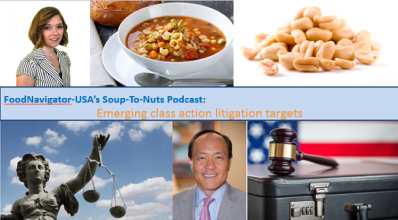IVAN WASSERMAN: Newport Trial Group case is one to watch
Next we spoke to Ivan Wasserman, partner in the Washington DC office at Manatt, Phelps and Phillips.
What legislative issues will be top of mind in 2016?
Because it is an election year I do not expect there to be much action at the federal level. Action on GMO labeling at the state level is what to watch for if the feds do not pass pre-emptive legislation first.
I think as we head into a new year, it is a good idea for food companies to take a good look at their portfolios, and consider additional risk mitigation measures that can be taken. Perhaps it is just a small tweak of a word or an ingredient, or a modification to any online terms and conditions, or ensuring any important disclaimers are viewable on mobile platforms, or even a review of insurance coverage.
Will the FDA probes into natural labeling mean fewer lawsuits?
Since there is little to no barrier to file or to threaten to file a class action, and there are new attorneys graduating law school every year, I expect we will continue to see food-label based class action demand letters and lawsuits in 2016. Perhaps they will migrate away from ‘natural’ and focus on the next target area, whatever that is.
Can you cite a case that could change the food litigation landscape?
I think the most interesting case is the RICO case recently filed against the Newport Trial Group, perhaps the most prolific group of class action attorneys in this industry. If that proceeds it could have a very meaningful impact on the litigation landscape.
[The lawuit, filed by attorney Jonathan Emord, alleges that NTG, which has initiated hundreds of class action suits against dietary supplement companies and companies in other industries in recent years, has made it a practice to pay individuals to pose as injured parties for the purpose of initiating baseless suits.]





















